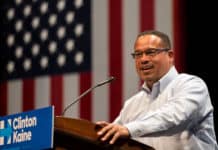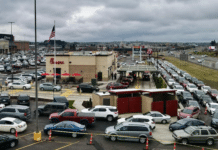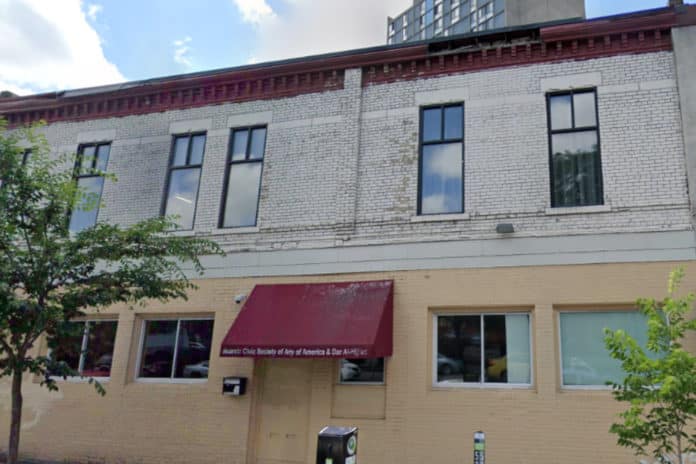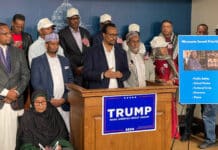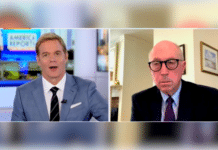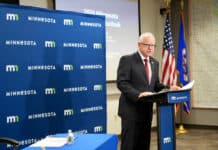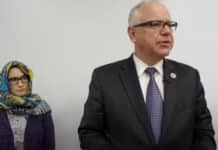Mosques in Minneapolis are now allowed to broadcast the Muslim call to prayer five times a day year-round.
The Minneapolis City Council passed a resolution last Thursday that acknowledged the legality of the call to prayer, according to a tweet by council member Jamal Osman.
The official purpose of the resolution was to commemorate the beginning of Ramadan, the ninth month of the Islamic calendar, in which fasting is to be observed each day. This year Ramadan began on Friday, April 1, and comes to an end on Sunday, May 1.
Speaking about the call to prayer — called the adhan — Osman said Minneapolis mosques are allowed to play it between 7:00 a.m. and 10:00 p.m., to correspond to Minnesota state law that permits broadcast noise during those 15 hours.
“This Ramadan, and moving forward, Muslims in Minneapolis will get to hear the call to prayer. It is a signal of the equality and community we have built here,” Osman added. “This is America and we are allowed to share our faith from the rooftops, just like everyone else.”
most important parts of our faith, and the ability to do it during the day has been in the city’s code all along.
Mosques around the city can play the call to prayer during the hours of 7am to 10pm. These hours are set by the state as time when noise can be broadcast outside.
— Jamal Osman (@JamalOsmanMN) March 24, 2022
The adhan was first broadcast five times per day in Minneapolis during the early stages of the COVID pandemic, when enforced lockdowns prevented Muslims from going to mosques to pray during Ramadan.
A loudspeaker set up in the city’s Cedar-Riverside neighborhood, just outside the Dar Al-Hijrah Mosque, played the call to prayer five times each day during Ramadan in 2020. Although able to be heard by “thousands” of residents across the neighborhood, the call to prayer was played at a volume abiding by city regulations.
Osman likened the call to prayer to the tolling of church bells by Christians, though the call to prayer includes Arabic phrases like “Allahu Akbar.”
“Muslims have been part of the fabric of America for over 400 years, since the first Muslims in America arrived as slaves,” the resolution passed by the council states. “Minneapolis has become home to one of the largest populations of Somali and East Africans in the nation, and their Muslim faith is welcome here.”


